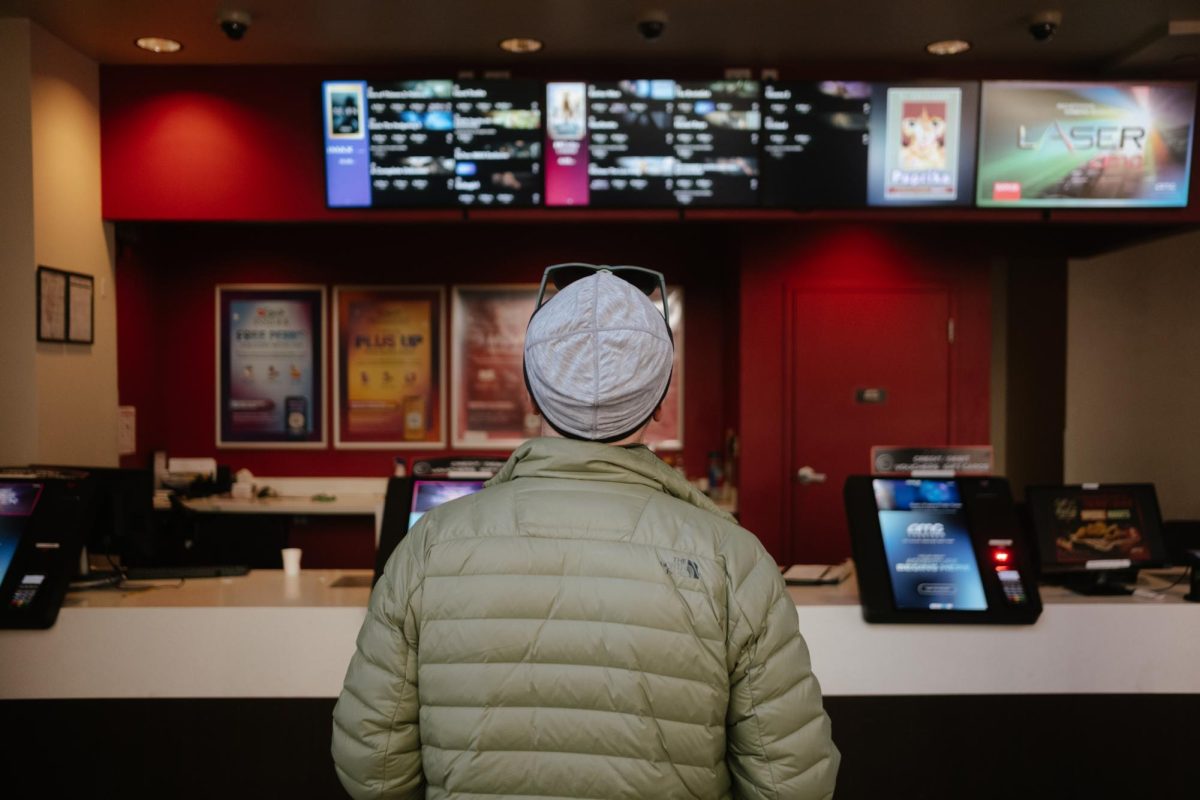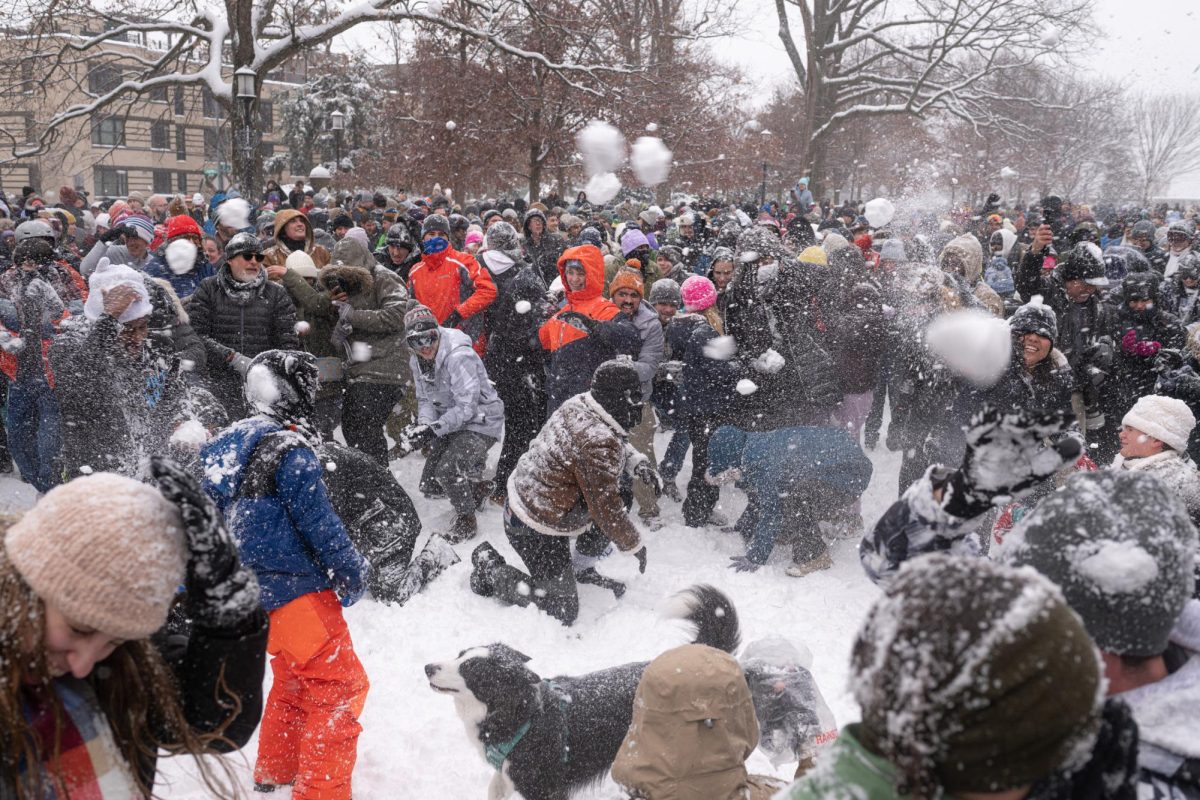This post was written by Hatchet reporter Abigail Eddy.
Not long after taking the stage at the 9:30 Club Friday night, singer-songwriter Julian Casablancas struggled to untangle the microphone from its stand. In true Casablancas fashion, he turned away from the crowd, deciding to leave the mic stand slightly off-base.
The audience roared.
At the concert, the lead singer of The Strokes showed off his most recent project, Julian Casablancas+The Voidz, a band formed by Casablancas, guitarists Jeramy Gritter and Amir Yaghmai, bassist Jake Bercovici, drummer Alex Carapetis and Jeff Kite on the keyboard.
After several false-alarm cheers from fans awaiting the band’s entrance, Julian Casablancas+The Voidz finally appeared. As soon as Casablancas stepped on stage, clad in a sporty, black track jacket, the entire audience pushed nearly four feet toward the stage, filling every available space.

Just a few songs in, bras were already landing on stage as others shouted his name and reached out to touch him.
asablancas’ deep voice led the sound, and guitar and bass riffs that seemed to echo The Strokes emerged through the distortion. The lyrical, melody-driven music of The Strokes, though, was all but forgotten, leaving room as the band experimented with other styles.
“Human Sadness,” a melancholy nearly eleven-minute track that builds atop an opening bass line, transitioned the audience to the band’s experimental sound early on in the set. The vocals blended together over the repetitive melody, creating a darker, more distorted theme.
Casablancas interrupted to comment only briefly between songs that were so stylistically consistent they often seemed to flow together.
“I’ll shut up now, sorry, I’m ruining the vibe,” Casablancas said after one such interjection.
Halfway through the show the stage was relit in a soft purple as the band shifted pace with the highly rhythmic “Father Electricity,” punctuating previous songs that were matched by flashing neon green and blue lights with a calmer hue.
The audience hung on the band’s every beat, and the band took the chance to play off the audience’s enthusiasm.
During “Crunch Punch,” the band teased the crowd by seemingly extending the abrupt pauses in the song, encouraging the crowd to cheer until the music resumed.
While Casablancas’ celebrity seemed to be the highlight of the show, guitarists Gritter and Yaghmai periodically took the lead, as Casablancas turned his back to the audience and draped the microphone over his shoulder.
Although the tunes weren’t quite sing-along friendly, fans did their best, singing to the words they did know and were enthusiastic throughout. Casablancas made one tribute to The Strokes near the end of the show, playing “Ize of the World.”
The band’s deep, distorted sound contrasted their more playful atmosphere onstage, showing a band unafraid to experiment with its sound. The group appeared less interested in creating a marketable band and more focused on simply making music.
While the tunes didn’t have the stuck-in-your-head factor characteristic of The Strokes, the band turned Casablancas fans into fans of Julian Casablancas+The Voidz.



